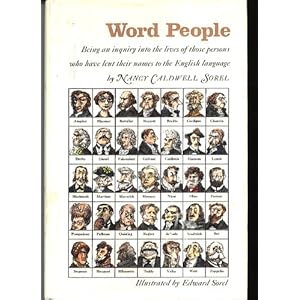… a Stephen King fan, which I owe to you. I wasn’t a fan before reading that many of you admire his writing. It’s not that I didn’t like his stories, I just never felt compelled to read them. I liked the movies based on his stories. My favorites are The Green Mile and The Shawshank Redemption. My least favorites are The Tommyknockers and The Dreamcatcher. The movies showed his storytelling skills but didn’t persuade me to read the stories.
I read The Dreamcatcher when it was first published because of the title and the negative reviews. I wondered how anyone could catch dreams. Also, I knew King was a prolific and popular writer who usually received positive reviews, so, I wondered, why the negative ones? After I read the novel, I agreed with the reviewers, it is a bad novel, and the movie didn’t improve the story.
I decided to read more of his stories because of your admiration. I bought two of his books at random: The Gunslinger: The Dark Tower and Just After Sunset. The third book, Different Seasons, I bought because it contains the story on which The Shawshank Redemption is based.
 For this post, I read the 13 stories in Just After Sunset. The protagonist in the story titled “N,” describes better than I can what King’s stories are like: “Reality is a mystery, … and the everyday texture of things is the cloth we draw over it to mask its brightness and darkness.”
For this post, I read the 13 stories in Just After Sunset. The protagonist in the story titled “N,” describes better than I can what King’s stories are like: “Reality is a mystery, … and the everyday texture of things is the cloth we draw over it to mask its brightness and darkness.”
“N” is the best and most enjoyable story in Just After Sunset. N, an accountant, sees a psychiatrist for his obsessive compulsive disorder after a weird experience he had while taking pictures of rocks in Ackerman’s Field. When he looks with his naked eye, he sees seven rocks and strange shapes, but when he looks through his camera’s viewfinder, there are eight, and things appear normal. The aftermath of the experience causes him to see even numbers as safe, odd as unsafe, and he must make sure there are an even number of objects on tables, etc.. Although he fears whatever he sees or thinks he sees in the field, he returns again and again. No spoiler, so I won’t tell you how it ends, but the end is scary.
 “A Very Tight Place,” involving a conflict between two men over a piece of land, proves that you can still enjoy a story even when you foresee the protagonist will escape a trap his enemy has laid. Such a story satisfies the reader’s anticipation. The incident in “A Very Tight Place “ involving the protagonist’s escape from a portable toilet occurs about a third of the way in the story and kept me on the edge of my seat. I knew he would escape – his being trapped was nowhere near the end of the story. Not only did I want to see how he would escape, I wanted to help him. King’s prose is so good that I felt right there in that sweltering, stinky toilet with him.
“A Very Tight Place,” involving a conflict between two men over a piece of land, proves that you can still enjoy a story even when you foresee the protagonist will escape a trap his enemy has laid. Such a story satisfies the reader’s anticipation. The incident in “A Very Tight Place “ involving the protagonist’s escape from a portable toilet occurs about a third of the way in the story and kept me on the edge of my seat. I knew he would escape – his being trapped was nowhere near the end of the story. Not only did I want to see how he would escape, I wanted to help him. King’s prose is so good that I felt right there in that sweltering, stinky toilet with him. “The Gingerbread Girl” is the poorest story in the book where implausibility overwhelms credibility. A young woman who lost her child and is thinking of divorcing her husband goes to her father’s cabin in a deserted resort where she encounters a serial killer. To flee his house, (no spoiler here) after escaping from the kitchen chair he'd taped her to, she runs into the bedroom/office with him pursuing close behind, where she bars the door with a chair. She throws an old school desk through a window, wraps a blanket around herself, and jumps out the broken window. In escaping from the chair, she sprained her wrist and lower back. It seems to me that those injuries would have made it rather difficult for her to escape though that window. I just couldn’t suspend my disbelief.
“The Gingerbread Girl” is the poorest story in the book where implausibility overwhelms credibility. A young woman who lost her child and is thinking of divorcing her husband goes to her father’s cabin in a deserted resort where she encounters a serial killer. To flee his house, (no spoiler here) after escaping from the kitchen chair he'd taped her to, she runs into the bedroom/office with him pursuing close behind, where she bars the door with a chair. She throws an old school desk through a window, wraps a blanket around herself, and jumps out the broken window. In escaping from the chair, she sprained her wrist and lower back. It seems to me that those injuries would have made it rather difficult for her to escape though that window. I just couldn’t suspend my disbelief.
I haven’t decided which book to read next. I am certain of one thing, I shall not read more of the stories on a dark and stormy night.


















